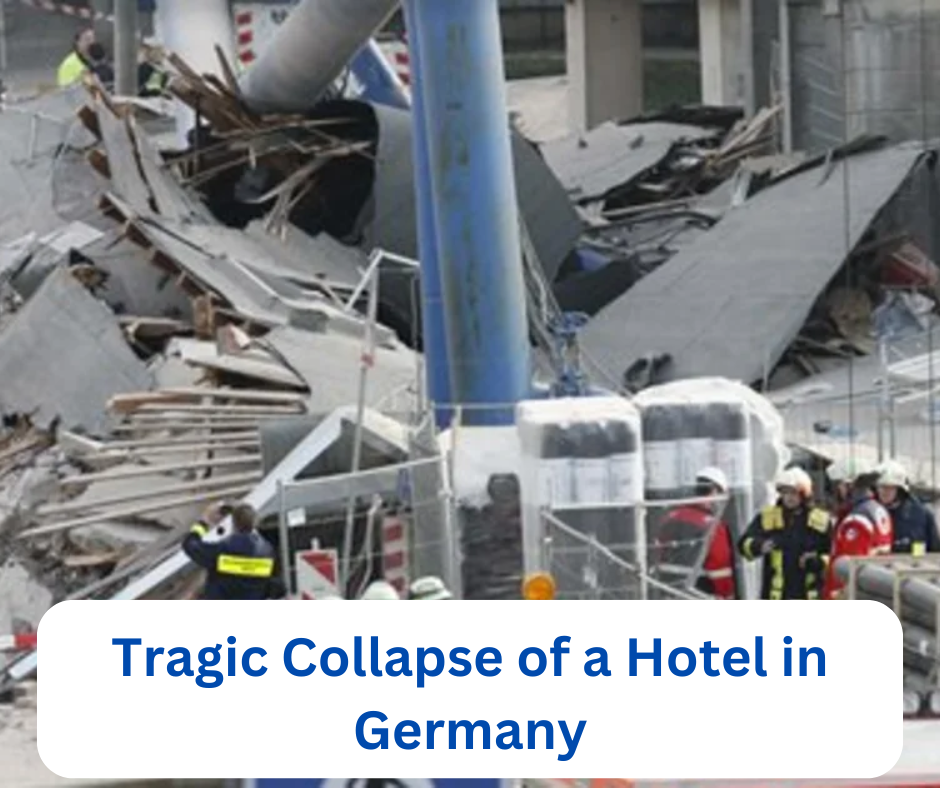In a devastating turn of events, the serene town of Bad Reichenhall in Bavaria, Germany, witnessed a catastrophic hotel collapse that claimed numerous lives and left many injured. The incident has sent shockwaves across the nation, raising concerns about building safety and emergency preparedness. In this article, we delve deep into the details of the collapse, the immediate aftermath, the ongoing investigations, and the broader implications for the construction industry in Germany.
The Incident: What Happened?
The Collapse: A Timeline of Events
On a seemingly ordinary afternoon, the popular Alpen hotel in Bad Reichenhall experienced a sudden and tragic collapse. At approximately 3:00 PM, the hotel structure, which had stood for decades, gave way without warning. Eyewitnesses reported hearing a loud rumble followed by the sight of dust and debris enveloping the area. The collapse occurred swiftly, leaving little time for those inside to escape.
Emergency Response: Immediate Actions Taken
The local emergency services were promptly alerted, and within minutes, a coordinated rescue operation was underway. Firefighters, paramedics, and police officers worked tirelessly to rescue those trapped under the rubble. The challenging terrain and unstable debris made the rescue efforts perilous, but the bravery and dedication of the rescue teams were evident as they worked round the clock to save lives.
Investigating the Cause
Structural Failures: Initial Hypotheses
Initial investigations suggest that structural failures may have been a significant factor in the collapse. Experts are examining whether the building’s age and the materials used in its construction could have contributed to its sudden failure. Preliminary reports indicate that there may have been undetected weaknesses in the building’s foundation and support structures.
Regulatory Oversight: Were There Lapses?
The tragedy has also brought regulatory oversight into sharp focus. Questions are being raised about whether the hotel had undergone recent safety inspections and if any potential issues were overlooked. The building regulations in Germany are stringent, and any lapses in adherence could have serious consequences. Authorities are scrutinizing inspection records and maintenance logs to determine if there were any regulatory oversights.
Impact on the Local Community
Loss and Grief: The Human Toll
The collapse has had a profound impact on the local community. Families are mourning the loss of loved ones, and the town is grappling with the emotional aftermath of the tragedy. Memorial services are being held, and community support groups have been established to help those affected by the disaster.
Economic Consequences: Tourism and Business
Bad Reichenhall, known for its picturesque landscapes and tourist attractions, is now facing significant economic challenges. The hotel was a key part of the local tourism industry, and its loss, along with the negative publicity, has led to a downturn in visitor numbers. Local businesses that depended on the influx of tourists are struggling to stay afloat, and the economic ripple effects are being felt across the town.
Long-Term Implications for the Construction Industry
Re-evaluating Building Standards
In the wake of the collapse, there is a growing call to re-evaluate building standards and regulations across Germany. Construction companies and regulatory bodies are under pressure to ensure that existing structures are safe and that new buildings adhere to the highest safety standards. The incident has highlighted the need for rigorous inspections and ongoing maintenance to prevent similar tragedies in the future.
Technological Advancements in Building Safety
Advancements in technology are poised to play a crucial role in enhancing building safety. Innovations such as smart sensors and real-time monitoring systems can detect structural weaknesses before they lead to catastrophic failures. The adoption of these technologies could revolutionize the construction industry, providing an additional layer of safety for buildings and their occupants.
Lessons Learned and Future Preparedness
Emergency Preparedness: Improving Response Strategies
The incident has underscored the importance of emergency preparedness and response strategies. Authorities are reviewing their disaster response protocols to ensure that they are equipped to handle such crises efficiently. Training programs for emergency responders are being enhanced to better prepare them for dealing with large-scale disasters.
Public Awareness and Education
Raising public awareness about building safety and emergency preparedness is crucial. Educational campaigns are being launched to inform residents about the signs of potential structural issues and the steps to take in the event of a building collapse. By empowering the public with knowledge, authorities hope to mitigate the risks and enhance community resilience.
Conclusion
The tragic collapse of the Alpen hotel in Bad Reichenhall is a somber reminder of the fragility of human-made structures and the importance of stringent safety standards. As investigations continue and the community works towards recovery, it is imperative that lessons are learned to prevent such disasters in the future. The incident has sparked a nationwide dialogue on building safety, regulatory oversight, and emergency preparedness, paving the way for a safer and more resilient future.
